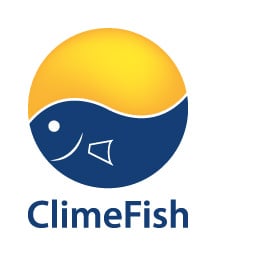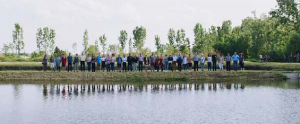
The marine aquaculture sector includes six specific case studies describing different aquacultured species and systems. Three fish species includes the most popular marine farmed fish species in Europe, Sea bass (Dichentarius labrax) in Greece and Atlantic salmon (Salmo salar) in Scotland and Norway, as well as common carp (Cyprinus carpio) pond farming in Hungary, in…

ClimeFish will make a European standard for how to make Climate Adaptation Plans As outlined in the project plan, ClimeFish will deliver a European good practice standard called “Recommendations for making Climate Adaptation Plans for marine capture fisheries, marine aquaculture and freshwater lake and pond production”. The standard is a so called CEN Workshop Agreement…
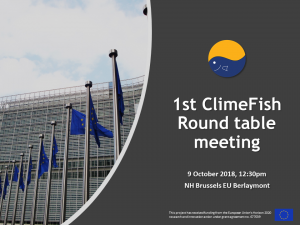
ClimeFish project facilitated a dialogue platform, where 24 participants, including policy makers and ClimeFish partners, debated on how to mainstream adaptation in the European maritime policies. What are the adaptation priorities for fisheries and aquaculture in Europe? How can ClimeFish contribute to integrate climate change adaptation? Representatives from the EU Commission (DG Mare, DG Clima,…

ClimeFish was invited to attend ‘The Copernicus for fisheries and aquaculture’ workshop in Brussels in 2nd October 2018. Climate change issues as well as ClimeFish project were received a lot of attention during the workshop. At the session ‘Fisheries challenges, user needs and innovation paths’ Thuy Pham, from UiT – The Arctic University of Norway,…
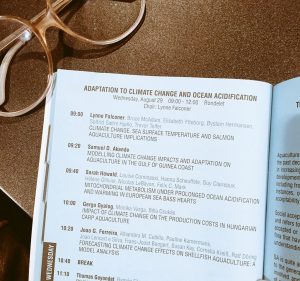
August 25-29. 2018, Montpellier, France ClimeFish was present at the AQUA2018 conference in Montpellier. AQUA2018 was co-arranged by the European Aquaculture Scociety (EAS) and the World Aquaculture Scociety (WAS), as they do every six years. As these conferences are global aquaculture events, participation in Montpellier was expected from more than sixty countries. As was said at the…
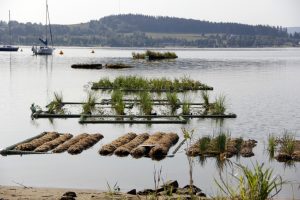
From The Biology Centre of the Czech Academy of Sciences, Institute of Hydrobiology, 58th Annual Report Written by: Jan Kubečka Since the Czech Republic has few small natural lakes, Czechs have had to build other lakes themselves. The country now has tens of thousands of artificially built lakes – mainly fishponds, reservoirs and flooded former…
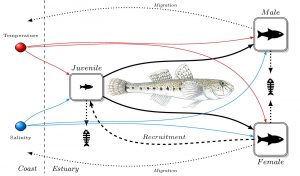
Climate change is one of the biggest threats for biodiversity nowadays, affecting many aspects of species life, range of suitable areas of occurrence and ecological interactions. Despite of the severity of the phenomena, the number of studies simulating the effects of climate change on fish populations is still rare. In the last years the scientific…

Collaborative project developed during Samuel’s visit in Tromsø (5/06/18- 5/07/18) Samuel Dijoux, PhD student, contact: dijous00@prf.jcu.cz Affiliations: Dept. of Ecosystem Biology, Faculty of Science, University of South Bohemia, Czechia Laboratory of Ecology of Aquatic Insects and Relict Ecosystems, Dept. of Biodivdersity and Conservation Biology, Institute of Entomology, Biology Centre CAS, Czechia Brief presentation I am…
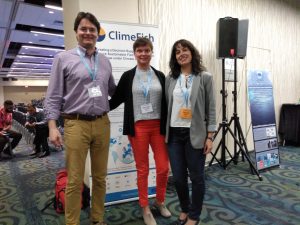
The scope of “The Effects of Climate Change on the World’s Oceans” conference in Washington, ECCWO 2018, was to discuss the consequences of different levels of the 21st century climate change for ocean ecosystems and ocean dependent communities. The 4th International Symposium brought together experts from around the world to better understand climate impacts on…

Nha Trang University in Vietnam is one of the partner institutions in the EU ClimeFish project. According to the Climate Change Vulnerability Index, Vietnam is among 30 countries in the world that is at ‘extreme climatic risk’. The country is frequently exposed to natural disasters, including storms, floods, and droughts. Over the last 50 years,…

